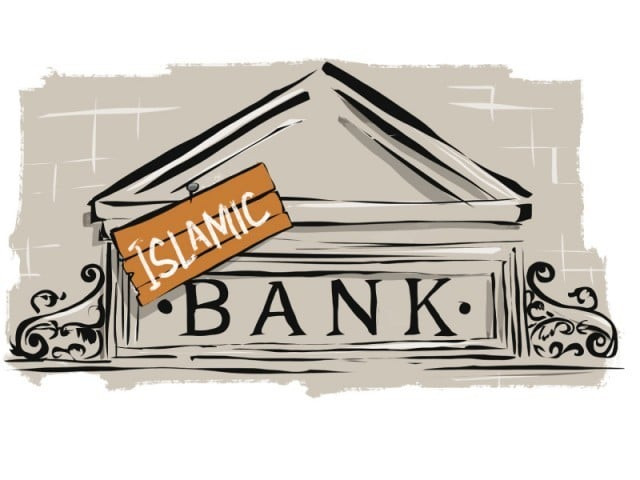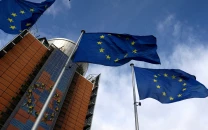Islamic financial system shows inherent resistance to global crises
It might not offer better returns but it does offer greater security.

Islamic financial system shows inherent resistance to global crises
The Islamic financial industry now comprises 430 Islamic banks and financial institutions and around 191 conventional banks having Islamic banking windows operating in more than 75 countries, according to the GIFR.
Pakistan is also a fast growing country with regards to Islamic finance and growth has been phenomenal. Starting from scratch in 2002, it is now about 8% of the local banking industry.
While Islamic banks play roles similar to conventional banks, fundamental differences exist. The central concept in Islamic banking and finance is justice, which is achieved mainly through the sharing of risk. Stakeholders are supposed to share profits and losses, and charging interest is prohibited.
There are also differences in terms of financial intermediation, the paper notes. While conventional intermediation is largely debt based, and allows for risk transfer, Islamic intermediation, by contrast, is asset based, and based on risk sharing. One key difference between conventional banks and Islamic banks is that the latter’s model does not allow investing in or financing the kind of instruments that have adversely affected their conventional competitors and triggered the global financial crisis. These include toxic assets, derivatives, and conventional financial institution securities.

Analysis done by the IMF suggests that Islamic banks fared differently, if not actually better than conventional banks during the global financial crisis. Factors related to the Islamic banking business model helped contain the adverse impact on their profitability. In particular, smaller investment portfolios, lower leverage, and adherence to Shariah principles—which precluded Islamic banks from financing or investing in the kind of instruments that have adversely affected their conventional competitors — helped contain the impact of the crisis when it hit in 2008.
The study used bank-level data covering 2007−10 for about 120 Islamic banks and conventional banks in eight countries — Bahrain, Jordan, Kuwait, Malaysia, Qatar, Saudi Arabia, Turkey, and the United Arab Emirates. These countries host most of the world’s Islamic banks (more than 80% of the industry, excluding Iran) but also have large conventional banking sectors. The key variables used to assess the impact were the changes in profitability, bank lending, bank assets, and external bank ratings.
While the study showed that Islamic banks were able to better withstand the initial impact of the crisis, the following year (2009), weaknesses in risk management practices in some Islamic banks led to a larger decline in profitability compared to that seen in conventional banks. The weak 2009 performance in some countries was associated with sectoral and name concentration—that is, too great a degree of exposure to any one sector or borrower. In some cases, the problem was made worse by exemptions from concentration limits, highlighting the importance of having a neutral regulatory framework for both types of banks.
Despite the higher profitability of Islamic banks during the pre-global crisis period (2005–07), their average profitability for 2008–09 was similar to that of conventional banks, indicating better cumulative profitability and suggesting that higher pre-crisis profitability was not driven by a strategy of greater risk taking. The analysis also showed that large Islamic banks fared better than small ones, perhaps as a result of better diversification, economies of scale, and stronger reputation.
Islamic banks contributed to financial and economic stability during the crisis, given that their credit and asset growth was at least twice as high as that of conventional banks. The IMF paper attributes this growth to their higher solvency and to the fact that many Islamic banks lent a larger part of their portfolio to the consumer sector, which was less affected by the crisis than other sectors in the countries studied.
However the post-crisis years have also shown where the Islamic banking sector is relatively weak. It lacks as efficient a structure for liquidity management as seen in conventional banking. The IMF report also recommended that the sector needs a stronger supervisory and legal infrastructure, including bank resolution.
The paper also recommended that Islamic banks and supervisors work together to develop the needed human capital, saying expertise in Islamic finance has not kept pace with the industry’s growth.
Published in The Express Tribune, December 17th, 2012.



















COMMENTS
Comments are moderated and generally will be posted if they are on-topic and not abusive.
For more information, please see our Comments FAQ